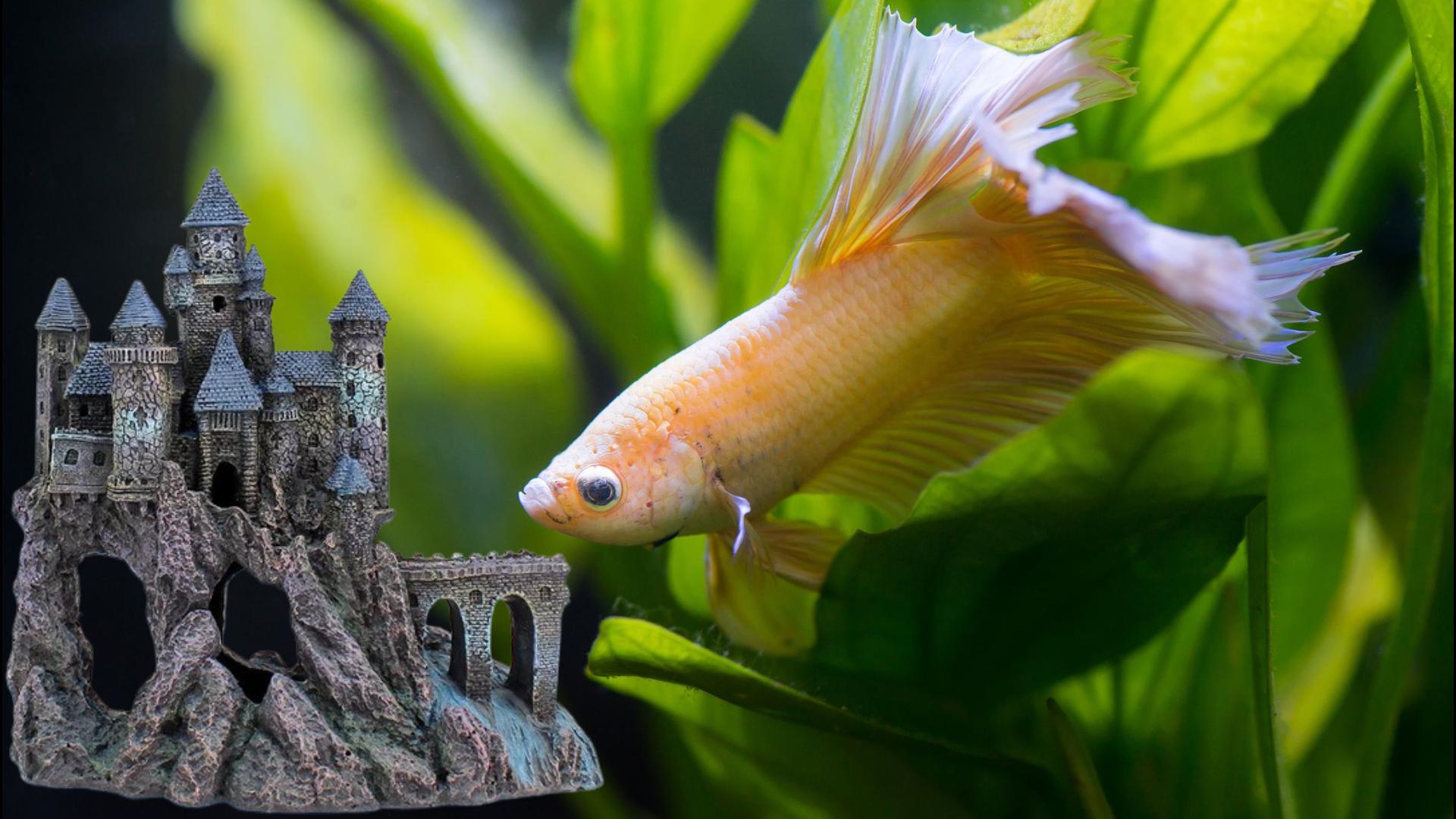Betta fin rot is a common and very treatable disease among domestic betta fishes. Basically, it is a fungal or bacterial infection on betta fins that gradually damages the fins and makes your betta fish sick. It is relatively easy to prevent fin rot, but if left untreated, fin rot eventually kills the sick betta fish. In this blog, we discuss how to do Betta fin rot treatment and all the things you need to know to save your betta.
Thanks for checking out our page. We publish new aquarium blogs every week. If you’re new to my blog post.
How to identify Fin Rot?
In the early stages of fin rot, the edges of the fins will discolor, appearing milky on the edges which can be easily missed. As the infection spreads, small pieces of the fins die and begin to fall off, leaving a ragged edge. Over time the fins become shorter and shorter as dead flesh continues to slough off the affected fins. The affected area may become red and inflamed, with bloody patches appearing as more tissue is eaten away.
What causes of Fin Rot
The most common cause of fin rot in bettas is POOR WATER QUALITY! Poor water quality is going to make your aquarium a breeding ground for bacteria, parasites, and fungal infections. On top of this poor water quality will also stress your betta. And over time this will weaken their immune system, making them more susceptible to fin rot. But fin rot can occur due to overfeeding or underfeeding. Inconsistent feeding can stress your betta fish out, causing their immune system to weaken and increasing the possibility of causing fin rot.
Fungal or Bacterial fin rot?
Fin rot can be caused by fungal or bacterial infections. When your betta is suffering from bacterial fin rot, it will appear uneven and cause the rotting to look more ragged. The bacteria that causes this type of fin rot often cause damage when your betta’s immune system is weakened. Fungal fin rot will appear more even across the fins. On top of this, you may notice a white edge on your betta’s fins. Once again fungal fin rot can strike better when your betta’s immune system is weakened. Also, fin-rots can occur due to high stress levels combined with poor water quality, poor diet, or injury.
How to treat Fin Rot?
#1. Check your fish’s environment – Betta fin rot treatment
Whenever your fish gets sick, the first thing you need to do is play detective and find out why the fish got sick. Check the water parameters with an aquarium water test kit to see if anything is out of whack. Make sure there are no environmental factors causing stress to your fish, like an overly strong filter, sharp decorations, or the wrong temperature.
#2. Recovering fish tank from infection – Betta fin rot treatment
Start by removing the affected fish from the tank and placing him in a separate tank with clean, fresh unchlorinated water. Wash the tank and all the tank accessories, I would give a good scrub with hot water to treat bacteria in the tank, gravels, and accessories.

If you have live plants, soak them in lukewarm water. You can then take them out of the water and let them air dry. Once you have washed the tank thoroughly and let it air dry, you can place the gravel and the tank accessories back into the tank by filling it with dechlorinated or conditioned water.
#3. Treat the fish with medications – Betta fin rot treatment
You need to treat the fish with antibacterial fin rot treatment. I would suggest keeping the betta fish smaller quarantine tank for a few days to perform the treatment unless your primary tank itself is smaller in size.
The aquarium salt method is good enough to treat the fish in most of the scenarios which can be commonly available to purchase at a local pet store or online. Mix aquarium salt with conditioned water in a separate container. Once it’s fully dissolved then you can add it to your quarantine tank. Aquarium salt proportion needs to be in line with your volume of tank water. Even though aquarium salt is incredibly effective, it’s not going to work in severe cases of fin rot. In such a case, look for fin rot medication that is made for betta fish and follow the dosage directions on the label.
#4. Make your fish very comfortable – Betta fin rot treatment
Keep your fish’s environment very clean and comfortable to ensure a quick recovery process. Medications can sometimes make the water harder to breathe in, so when you treat your sick fish with medication, you should supply extra oxygen so your fish can breathe. Medications tend to leech oxygen from the tank water so you will need to give your fish some supplemental oxygen to keep him healthy.
How Do You Know If Fin Rot Is Cured?
You may notice that the white edges around your fish fin are disappearing, or have disappeared. If the fin rot is more severe you may see signs of the fin regrowing. The fins and tail should start to look better. They’ll be less ragged and more healthy-looking. If there was any dark discoloration in the fins then it should be turning back to its original color.
How to Prevent Fin Rot
The best prevention against fin rot is good aquarium maintenance. Change the water regularly, vacuum the gravel, and monitor the water chemistry by having a regular testing schedule and documenting the results. Regular partial water changes also greatly help. When feeding, keep the quantity low. Only feed the fish as much food as they will consume in about 3 minutes, twice a day. Overfeeding is the most common mistake made by all fish owners and contributes to the poor water quality that fosters bacteria. It is also important to keep water temperatures warm enough for fish with long fins, as low water temperatures will promote fin rot in these species.
Hope today’s topic is helpful for you. It helps you to care for a sick betta in the right way. We do check all our comments in the comment section. If you have any questions about fin rots or betta fish treatments, leave a comment below! Thank you for checking out.






One Response
Thank you! its greatly helpful.